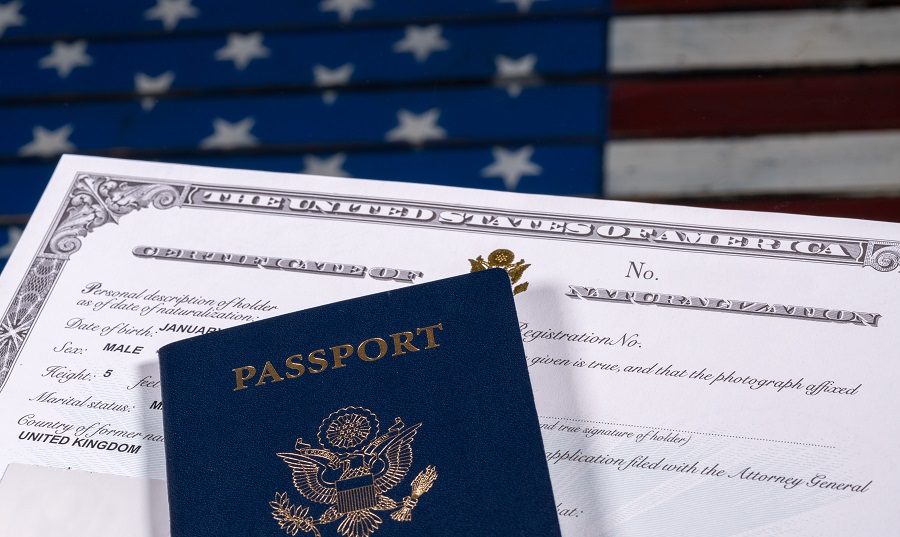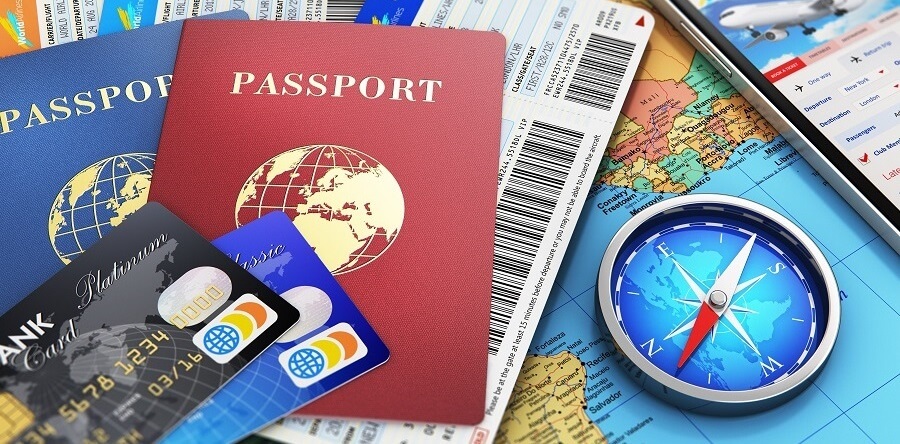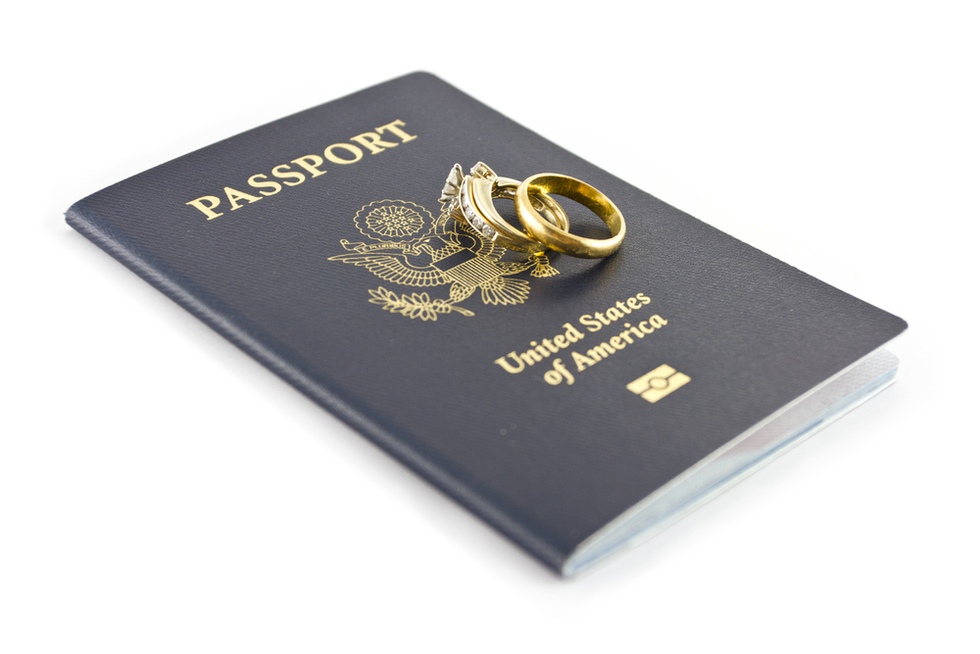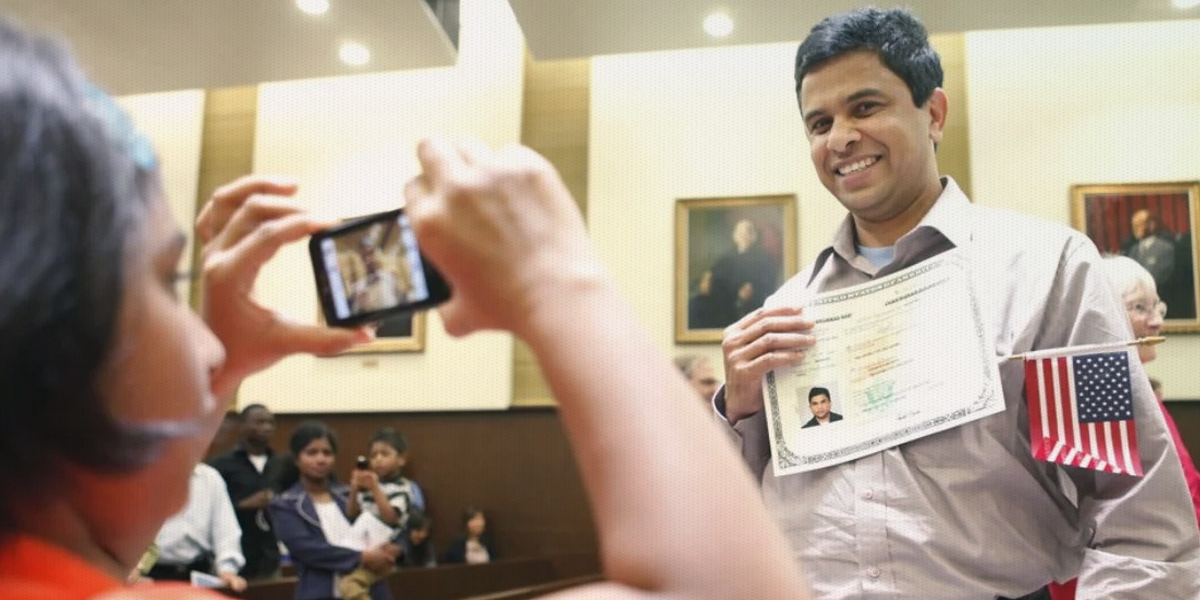
If you're a U.S. permanent resident, the process to apply for citizenship is more manageable than you might think. Once you confirm your eligibility, you'll need to file a form, pay the required fee, and pass a citizenship test during your interview. It may seem intimidating — but as an immigrant, you've already faced much tougher challenges.
This process, known as naturalization, is the most common path for immigrants to become U.S. citizens. Right now, an estimated 8.8 million permanent residents are eligible to apply. While it’s easier to remain a green card holder, citizenship brings major benefits. It offers stronger protection from immigration issues, access to more job opportunities, student scholarships, and freedom from many future immigration fees.
Why Apply for U.S. Citizenship?
Once again, it's much easier to remain a permanent resident. But becoming an American citizen unlocks a wide range of benefits and protections. If you're a permanent resident (green card holder), here are some great reasons to apply for citizenship:
Cost Savings
The average 30-year old will spend at least $5,300 in green card renewal fees over a lifetime. Once you become a citizen, there are no more filing fees.Easier Travel
Typically, an American passport can make traveling a bit easier. You won’t have to wait in the long lines for green card holders. Entry to several foreign countries doesn’t require a visa.Protection from Deportation
The U.S. government may put permanent residents in removal (deportation) proceedings for certain crimes. U.S. citizens can’t be deported.Help Family Members Immigrate
There’s always immigrant visa available for immediate relatives of U.S. citizens. Relatives of permanent residents may have to wait for years to obtain a green card because of an annual cap.Extended Stays Abroad
Many permanent residents put their green cards at risk by staying outside the United States too long. They risk abandonment of permanent residence. U.S. citizens may stay outside the United States indefinitely.Tax Benefits
U.S. citizens and green card holders can be treated differently by tax law. U.S. citizens may be subject to fewer restrictions on estate taxes and may be eligible for more tax exemptions than permanent residents.
If you have permanent resident children under the age of 18 that live with you, they will automatically become U.S. citizens when a parent naturalizes. There is no additional fee. What’s more, many financial aid grants for college are available only to U.S. citizens.
Who Is Eligible for Citizenship?
The majority of permanent residents are green card holders for five years before they apply for citizenship. There are provisions in the law for permanent residents who have been married to a U.S. citizen for three years as well as U.S. military service members. However, most applicants meet the following requirements before they apply for citizenship:
- At least 18 years old
- Been a permanent resident (green card holder) for at least 5 years
- Lived within the same U.S. state for at least 3 months before filing the application
- Have continuous residence in the U.S. as a permanent resident for 5 years before filing the application
- Have been physically present in the U.S. for at least 30 months out of the 5 years before filing the application
- Are able to pass the English test as well as U.S. history and government test
- Are persons of good moral character
We have resources that provide a more detailed explanation of citizenship requirements. For example, you may not know that you may submit the application up to 90 days before meeting the five-year continuous residence requirement.
Fastest Ways to Get Citizenship
While most permanent residents are eligible to apply for citizenship after five years, some individuals have a faster path. The groups most likely to take advantage of these reduced requirements are green card holders married to U.S. citizens and foreign nationals serving in the U.S. military.
Naturalization When Married to a U.S. Citizen
If you’re a permanent resident that’s married to a U.S. citizen, you may be eligible to naturalize after just three years. You must be married to the citizen for the last three years, and your spouse must have been a U.S. citizen during the entire period. Learn more >>Expedited Naturalization for U.S. Armed Forces
If you’re currently serving in the U.S. armed forces or recently separated, you may be eligible to naturalize. There are also provisions for those that performed active-duty military service in previous times of war. The U.S. armed forces includes the Army, Navy, Marines, Air Force, Coast Guard and National Guard. Learn more >>
Getting Ready to Apply for Citizenship
Before beginning the form to apply for citizenship, some people find it helpful to have a list of required materials. Although each situation is different, you'll generally need the following items:
Permanent Resident Card (green card)
You’ll need your Alien Registration Number and the date that you become a permanent resident. Both can be found on your green card.Social Security Number
It isn’t mandatory that you have a Social Security number. If you have one, you’ll include it on your application.Travel Dates
If you made any trips outside the U.S. during the five years that precede the application, you’ll need to document the dates of each trip (of 24 hours or more). Check credit card statements, frequent flyer records and other receipts to estimate dates to the best of your ability.Selective Service Registration Information
U.S. law requires that every U.S. male between the ages of 18 and 26 register for the Selective Service. The law does not apply to women or any foreign nationals in the United States with nonimmigrant status (e.g. tourists, students, business, etc.). If you’ve already registered, you can get an instant Official Letter of Registration at www.sss.gov. Learn more about failing to register for Selective Service.5 Years of Address Information
You’ll need to list your address(es) where you lived for the past five years (or three years if you have been married to a U.S. citizen during that time).5 Years of Employment/Education Information
You must provide your job and/or school information for the past five years (or three years if you have been married to a U.S. citizen during that time). Although employment and education are not requirements, the information will be used for a background check.Information about your Current and Former Spouses
If applicable, you’ll need to list information about your current spouse and any former spouses. Information includes: name, address, birth date, marriage date, immigration status, country of citizenship and A-number if applicable.Information about your Children
If applicable, you’ll need to list information about your sons and daughters (even if they are deceased or not living with you). Information includes: name, address, birth date, country of birth and A-number if applicable.
How to Apply for Citizenship: Step-by-Step
Once you’re confident you meet the eligibility criteria, here’s how to apply for citizenship:
Prepare Form N-400
The government form you'll use to apply for citizenship is called Form N-400, Application for Naturalization. It's essential that you fill out this application completely and accurately. Mistakes and omissions can delay or even cause reason to deny your application.
Still not sure if you're eligible? CitizenPath provides a Naturalization Package to help you prepare Form N-400 correctly. Our affordable service was created by immigration attorneys to make sure gets approved. It also confirms your eligibility before you have to pay.
Collect supporting documents
If you apply for citizenship based on the standard 5-year basis, your list of supporting documents may be limited to a photocopy of your green card. Other application types may need to submit marriage status documents and other records as applicable. Based on your answers, CitizenPath will provide a customized checklist of supporting documents with your prepared Form N-400.
Submit your application
You can file Form N-400 online through the USCIS website or by mail. If USCIS accepts your application for processing, you will receive a receipt notice by mail. This is your proof of applying. It may be useful if you need a green card extension. You can also use the receipt number to track your case.
Attend a biometrics appointment
USCIS will schedule a short biometrics appointment to collect your fingerprints, photo, and signature. These are used for a background check.
Complete the interview
At the naturalization interview, a USCIS officer will review your Form N-400, ask questions about your application, and test your English and civics knowledge. It's fairly simple, but you should prepare for the citizenship test.
Receive a decision
After the interview, the USCIS officer will often provide a decision. They may approve your application, continue (usually to request more information or schedule a second interview), or deny your application.
Take the Oath of Allegiance
If approved, you’ll attend a naturalization ceremony where you’ll take the Oath of Allegiance. You officially become a U.S. citizen at this moment.
Common Reasons for Delay or Denial
To avoid problems when you apply for citizenship, be aware of these common issues:
- Failing to meet physical presence or continuous residence requirements
- Falsifying information on Form N-400
- Unpaid taxes or child support
- Criminal history (even minor offenses)
- Missed appointments or deadlines
If you don't pass the English or civics test, you'll also have another opportunity to take the test on a separate date.
How CitizenPath Makes It Easier
Applying for citizenship can be overwhelming, especially if you're doing it on your own. That's where CitizenPath comes in.
We offer an affordable, do-it-yourself service that makes applying for U.S. citizenship easier and safer:
- Step-by-step guidance that’s easy to understand
- Instant error checking to prevent delays and denials
- Personalized filing instructions so you know exactly what to submit
- Created by immigration attorneys so you have the confidence it's reliable
Whether you're confident or nervous about applying, CitizenPath helps ensure your Form N-400 is complete and ready for USCIS.
Most people don’t need to hire an expensive lawyer to file correctly. You just need the right tools.
Want to keep up with changes in immigration law or get helpful tips about the citizenship process? Subscribe to the CitizenPath newsletter below.
It’s a free, easy way to stay informed and empowered as you pursue the American dream.
Want more immigration tips and how-to information for your family?
Sign up for CitizenPath’s FREE immigration newsletter and
SAVE 10%
on our immigration services







